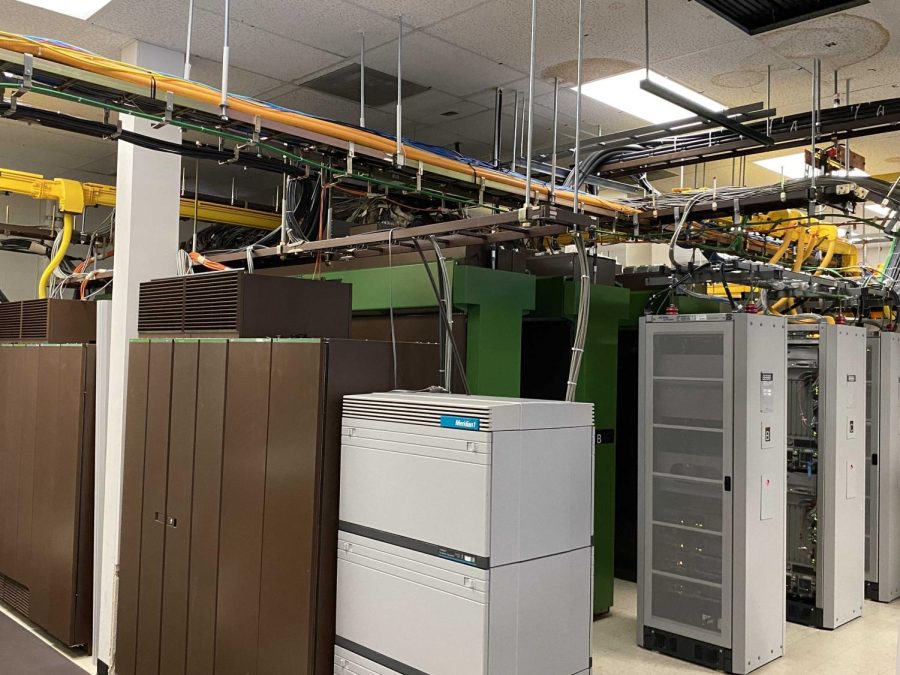NIU’s Microsoft Teams Voice transition continues
March will see five NIU colleges, as well as Athletics, transition away from landlines
The current phone switch used to operate landlines housed on the second floor of the NIU Police Department. The landline servers will soon be replaced by smaller servers after the transition to Microsoft Teams Voice phones. (Courtesy of John Kearsing)
February 26, 2023
DeKALB – The decommissioning of landlines across campus is continuing with the conversion to Microsoft Teams to be tentatively completed by June.
All 815-753 phone numbers are being ported from NIU’s current service provider, Frontier, to NIU’s new service provider, CallTower, which combines normal phone usage (texts, calls, etc.) with Microsoft Teams.
John Kearsing, project manager of the NIU Division of IT, said NIU opted to shift in multiple division phases so as not to overburden staff with a singular massive shift.
Catherine Doederlein, director of Employee Experience for NIU Human Resources, said the departments experiencing the transition, including her own, are adapting quickly to the change. This is because Teams is similar to the current phone lines, just with added features – transcribing voicemails and more accurate caller-ID.
“I think with any technology change people expressed maybe some initial apprehension in some cases, just because they weren’t sure how easy it would be to use,” Doederlein said. “But I think once they transition they seem to also find it really seamless and really appreciate the training sessions that we’ve been provided.”
March will see six different divisions shifting to Teams, including Athletics, the College of Visual and Performing Arts, the College of Engineering and Engineering Technology, the College of Health and Human Sciences, the College of Education and the College of Liberal Arts and Sciences.
750 staff members have already been shifted from the legacy landline system and have been trained so the new system can be used instantaneously upon their division’s completion.
Landlines will still exist on campus after this transition. Physical phones that exist in labs or other areas of exception will still be there but will connect to the new phone system – landline phones will essentially be using Teams.
Kearsing said the current outdated phone system from the ‘80s cannot be modified like Teams can. The power requirements for the landline system means the system currently takes up an entire room of the second floor of the public safety building. After finishing converting to Teams, the room of switches and wiring will be replaced by a small stack of servers.
The total shift will oversee 3,000 different phone numbers to Teams, with 2,000 belonging to employees, student workers and graduate assistants and 1,000 belonging to services such as lab phones, elevator phones, and fax machines.
The shift in these service phones is going slowly.
“Elevators, there’s alarms, phones in labs and what we call common area phones,” Kearsing said. “There are things that don’t look like phones that use our phone network.”
A time delay used to occur when developing and testing how to connect Teams to 911 operators which has since been solved. Now when dialing 911, Kearsing said callers will be routed to their Public Safety Answering Point. For those in DeKalb, their Public Safety Answering Point is the DeKalb Police Department.
For updates on the conversion, information on using Teams and other frequently asked questions, visit the Division of Information Technology Microsoft Teams page.







